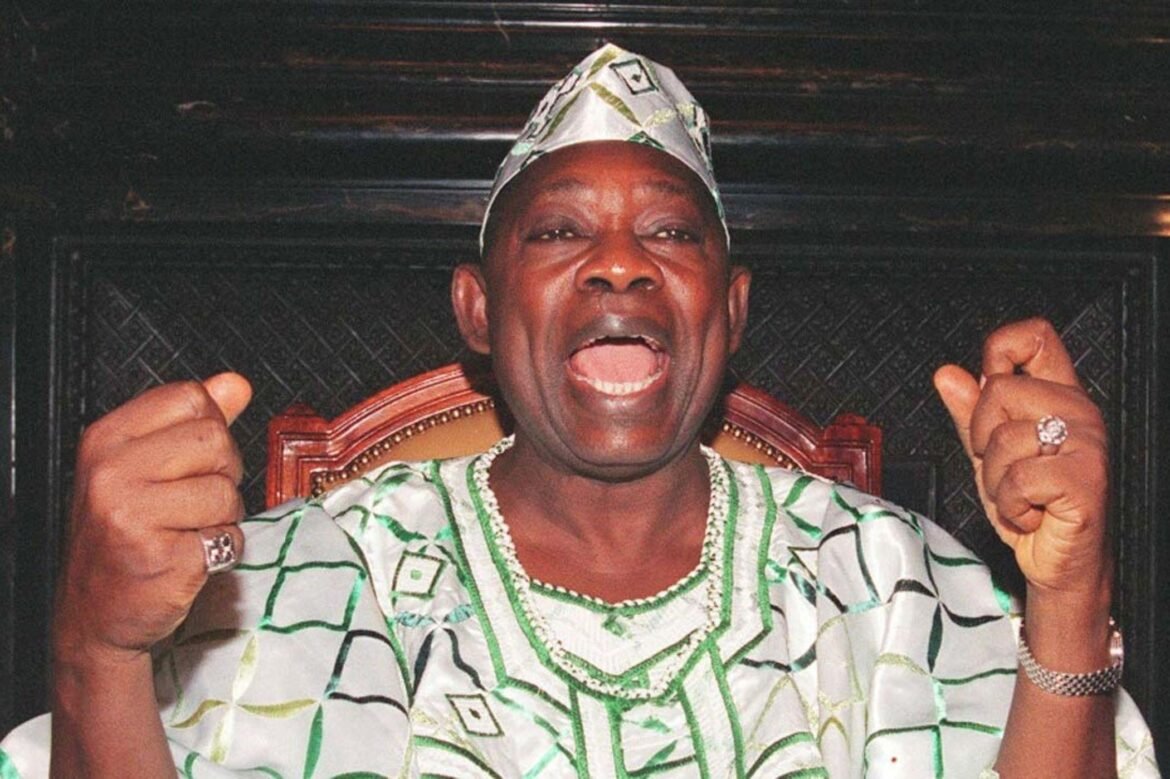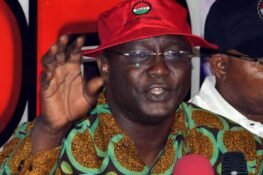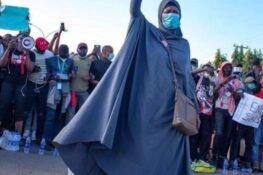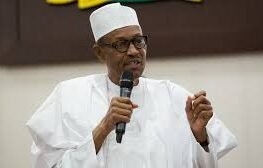It recently occurred to me that most Nigerians were not alive on June 12, 1993.
As a result, the cornerstone of Nigeria’s history is getting lost in translation, and the younger generation are unable to appreciate the price that was paid for their freedom.
For those in my generation, June 12 is everything. For the youths of today, it’s mostly lost history.
The older generation have to take the blame because that June 12 is a watershed, too sacred to be a time to be in a picnic.
It is a holiday that should be spent reflecting and meditating on Nigeria’s past, present and future. It should be a day for service and reflection.
In 1993, 31 years ago, when the military did its worst at experimenting with the national experience, most Nigerians were not alive.
According to the United Nations World Population data, 69% of Nigerians were not born in 1993.
Statistics further show that those in the 55-64 age bracket are just 4.5% of the population while those 65 and older account for a mere 2.6%.
So, it is possible to have up to 23% of Nigerians between the ages of 31 to 54 who may not be well disconnected to history.
The greatest majority of the population are not of age to fully understand the dynamics that led to the current democratic governance in the country, except they were taught.
With that being the case, an inference can be made that June 12 celebrations do not have the same meaning to all Nigerians.
Too many are detached from the phenomenon.
So, June 12 is not a common experience.
The political, economic, ethnic, religious and social assumptions and reasoning wired around June 12 is not a common heritage.
The greatest majority of the population are not of age to fully understand the dynamics that led to the current democratic governance in the country, except they were taught
For my generation who witnessed it, June 12 was about cheating, changing the rules after the game, dictatorship, disrespect for rules, ethnicity, greed, intolerance, pomposity, deceit and stubbornness – plus everything else that tears a nation apart.
Nigeria had gone through years of manipulation and failed promises about the return from military to civilian rule.
And when everyone thought it was done and dusted, the military decided it could not hand over to civilians.
The vicious cabal in power had held on to power with a single promise: to lead Nigeria back to democracy.
Trusting and hopeful, Nigerians were carried along until 1992, when an abrupt cancellation of a political process led to mass suspicion about the true intentions of the generals who were as corrupt as they come.
At that point, the term “Hidden Agenda” was coined by the late lawyer, Mr. Alao Aka Bashorun, who declared that the military planned to succeed itself.
Bashorun seemed to have provided guiding light as Nigerians began to place the transition program under the microscope.
The outcry that followed the cancellation of presidential primaries about to be won by the late General Shehu Yar’Adua led the most distrusted general and head of the junta, General Ibrahim Babangida, to hurriedly, without much of his usual plotting, move the political transition process forward at such a pace that derailed his entire strategy to remain in power.
At the centre of the crisis were General Babangida and his savage partner, General Sani Abacha, co-conspirators who had held Nigeria by the throat for long through military coup d’états.
At the other angle was billionaire businessman and publisher, arguably the richest man in Nigeria at the time, Chief Moshood “MKO” Abiola.
Abiola had strong ambitions to lead the nation and had significant influence and connections across Nigeria. Babangida was his close friend.
Abiola had been assured of safe landing if he contested, and won and that was just what he accomplished.
He threw his wealth and influence into the political system and won in what has been described as Nigeria’s freest and fairest election.
But while the results were being declared, Babangida, also known as the “evil genius,” “Maradona” or “IBB,” stopped the release of results and annulled the election. Nigerians were livid.
The nation erupted into instant violence as newspapers were quickly shut down while protesters were slaughtered across the country by soldiers.
Eventually, it dawned on the Maradona the game was up.
His expertise in extinguishing a real coup by Major Gideon Orkar and a phantom coup that led to the murder his best friend and best man, Major-General Mamman Vatsa, failed him.
Babangida was forced to vacate his beloved presidential seat.
Those old enough can remember how Babangida made a spectacle of himself on the NTA as he bounced on a chair in utter confusion before he had to “step aside.”
Babangida was forced out, but not before he planted his equally ruthless and utterly vindictive partner, General Abacha, to guide a lame civilian caretaker administration of Ernest Shonekan.
It surprised no one that Abacha ate up Shonekan and his paper-weight administration in less than three months, and continued the evil legacy of his former boss, IBB.
The hand of God played Abacha out (or so people thought), as he died mysteriously in power.
Strangely, other possible replacements, including M.K.O Abiola and General Tunde Idiagbon died in the same manner, all in Abuja, within months of each other.
The military would not let go.
Babangida’s crony and kinsman, General Abubakar Abdulsalam, became the Head of State overnight.
The stage was set for Babangida’s return to the limelight, as he quickly arranged for former military head of state, General Olusegun Obasanjo, to assume power as civilian president.
An indigent Obasanjo was propped with money, ostensibly the guinea pig for Babangida’s experimentation of former military rulers returning as civilian presidents.
Nigerians responded favourably to Babangida’s experiment, accepting Obasanjo, fellow former soldier, to lead for a second time.
The bedrock for today’s economic and financial problems in Nigeria was laid by Ibrahim Babangida, who created conditions malignant to national advancement, such as the institutionalization of the culture of corruption that is now heavily entrenched in the social and moral fabric of the Nigerian society.
The phenomena of the notorious thievery schemes or theft-by-deception, a.k.a “419,” is largely believed to have gained undue prominence and seeming acceptance during the eight-year misrule of Ibrahim Babangida in Nigeria.
Today, the nuisance of the so-called “Yahoo Boys” is believed to be a by-product or creation of the IBB era.
What is the moral justification for a society to wage war on scammers when military and political heavyweights enjoy stolen public wealth without restraint?
These conditions have been almost impossible to reverse.
These are the truths that the new generation need to grasp. The younger people need to be sat down and lectured on June 12.
Babangida was forced out, but not before he planted his equally ruthless and utterly vindictive partner, General Abacha, to guide a lame civilian caretaker administration of Ernest Shonekan
When selfish politicians and individuals step out to ask for the return of military rule, we have to be careful.
It means the lessons of June 12 have not been learned.
If someone says today’s politicians are bad, I am a testament to the fact that the military was worse.
Yes, today’s politicians could do better.
Yes, Nigeria should have made better progress under a democratic dispensation.
Yes, Nigerians should not be suffering this much.
But the military is not a solution to our political and economic issues. Rather, it has proven itself to be worse and far more undesirable.
Let’s not forget the past so quickly. It’s only 31 years. The military cannot do better.
What we need to do is strengthen our democratic systems and culture.
How can we do that?
We start by being watchful, civilized and actively-engaged citizens who take responsibility for our own shortcomings, rather than blame all things on every other.
The real lesson of June 12 is good citizenship. It was good citizens who gave Babangida a dirty kick.








